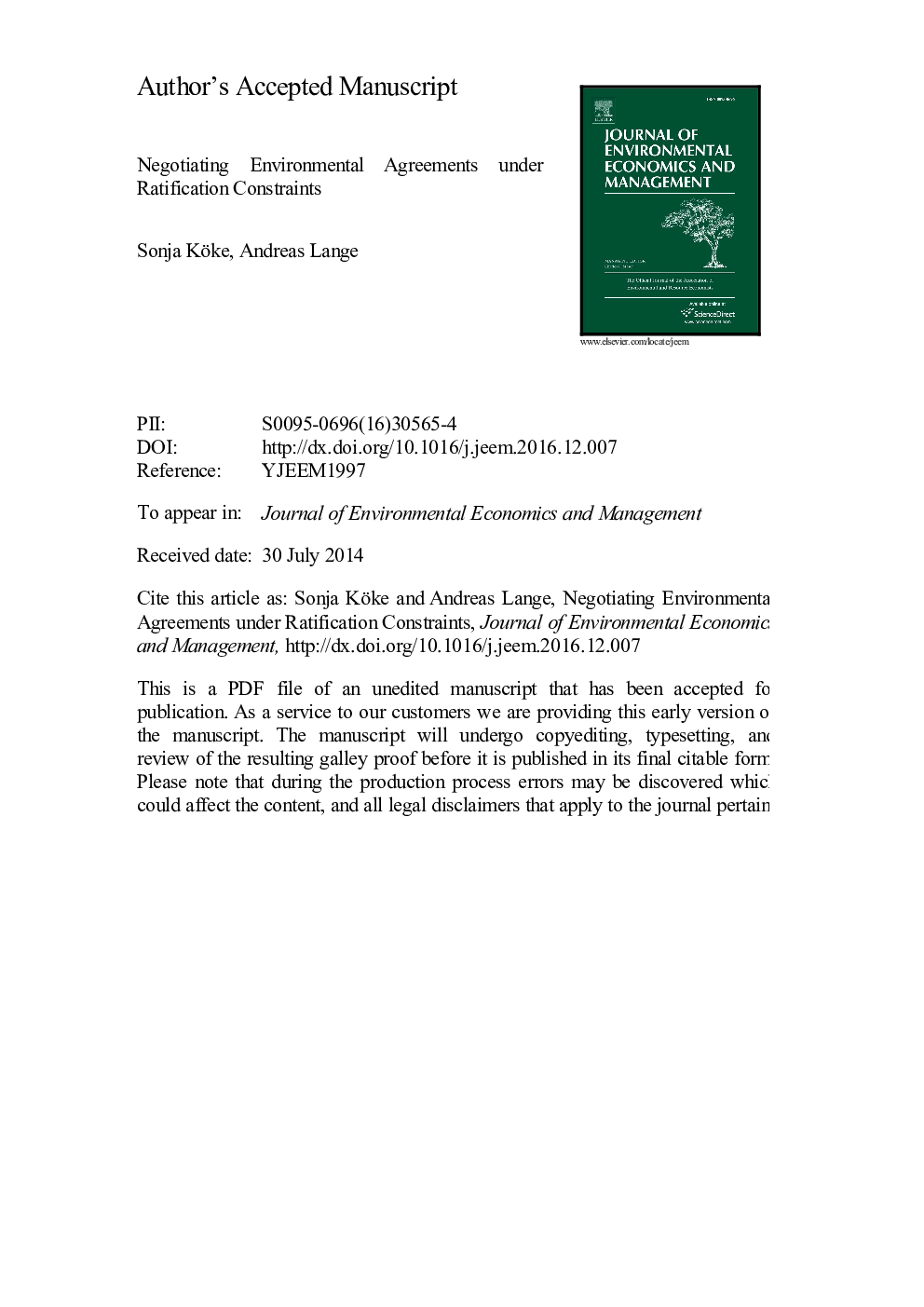| Article ID | Journal | Published Year | Pages | File Type |
|---|---|---|---|---|
| 5100413 | Journal of Environmental Economics and Management | 2017 | 40 Pages |
Abstract
We analyze the impact of ratification constraints on the optimal terms of international environmental agreements (IEAs). For this, we combine the literature on IEAs with the public choice literature on two-level games. By also incorporating uncertain preferences of the pivotal voter in the ratification stage, we make several important contributions: (i) we contribute to a more realistic modeling of the temporal structure of international agreements, (ii) we show a surprising, yet intuitive non-monotonic relationship between the optimal commitment level and the variance of ratification decisions, (iii) we identify reasons to expect a larger number of countries to join international negotiations than predicted by most of the coalition formation literature based on a representative agent model. Ratification constraints thereby can improve the welfare gains from stable international agreements.
Related Topics
Social Sciences and Humanities
Economics, Econometrics and Finance
Economics and Econometrics
Authors
Sonja Köke, Andreas Lange,
